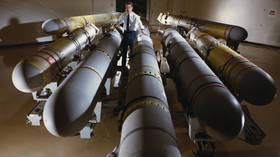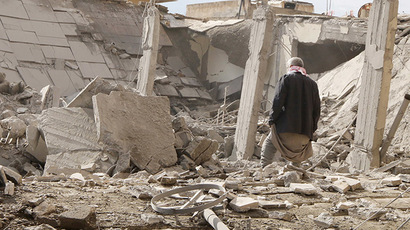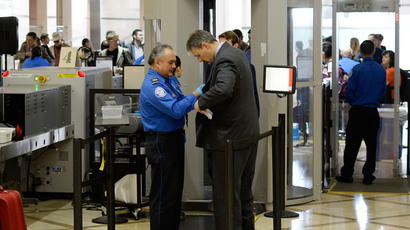France sends Charles de Gaulle aircraft carrier for anti-ISIS op in Iraq
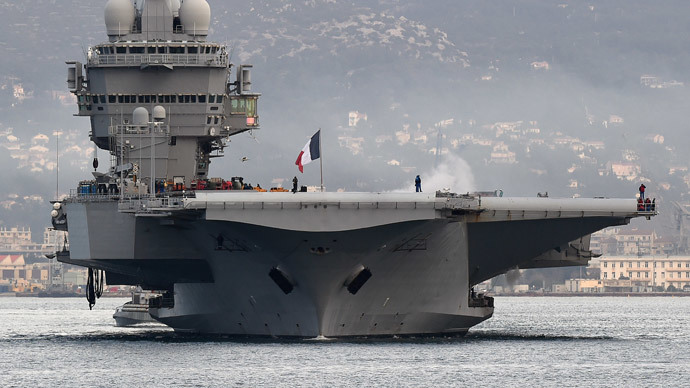
French President Francois Hollande has announced that the Charles de Gaulle aircraft carrier is ready for use in military operations against Islamic State in Iraq. The warship is to work in cooperation with coalition forces combatting the militants.
In a speech onboard the aircraft carrier on Wednesday, Hollande told military personnel that that the Charlie Hebdo massacre carried out by Islamic extremists last week “justifies the presence of our aircraft carrier.”
"Thanks to the Charles de Gaulle we will have intelligence ... we may also conduct operations in Iraq," Hollande said.
Charlie Hebdo massacre aftermath LIVE UPDATES
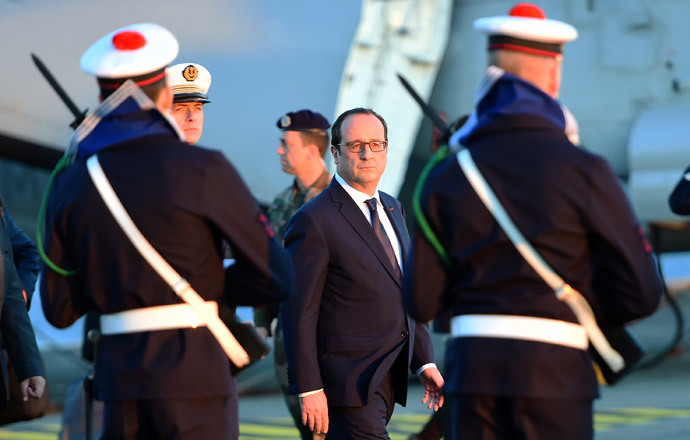
The nuclear-powered aircraft carrier is the flagship of the French fleet, and is currently cruising off France’s southern coast in the Mediterranean.
The carrier is the largest Western European warship currently in commission, and is France’s only nuclear-powered surface vessel. The ship can carry 20 to 25 aircraft, including Super Etendard strike fighter jets, Rafale M multirole fighter jets and Aster missiles.
The ship’s deployment, during which it will provide airstrikes against Islamic State militants, is expected to last until May at the earliest.
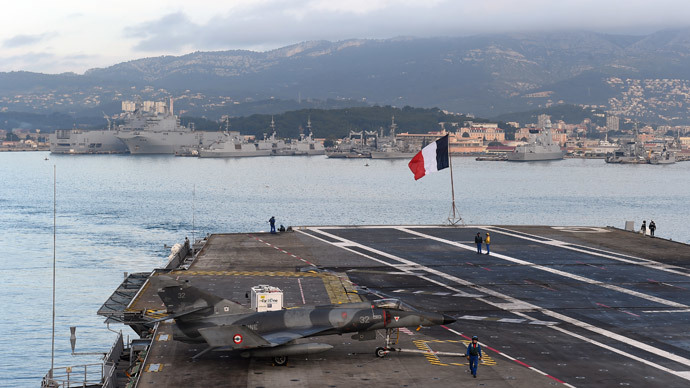
Since last week’s deadly terrorist attacks in Paris which killed 17, authorities have been tightening security as they continue the search for accomplices to the perpetrators. France has deployed 10,000 troops and 120,000 additional security personnel to sensitive areas including Jewish schools, synagogues and mosques.
In the aftermath of the attacks, 54 people, including four minors, have been arrested for defending terrorism and hate speech. None of those arrested have been linked to the attack. Several, however, have already been convicted under special measures for immediate sentencing.
READ MORE: ‘Act of war’: New Charlie Hebdo edition triggers Muslims’ anger, threats
An order distributed to the country’s judges and prosecutors by the Justice Ministry said that freedom of expression does not include hate speech or calls to violence. Those convicted of inciting terrorism could face up to five years in prison, while inciting terrorism online can result in a seven-year sentence.








